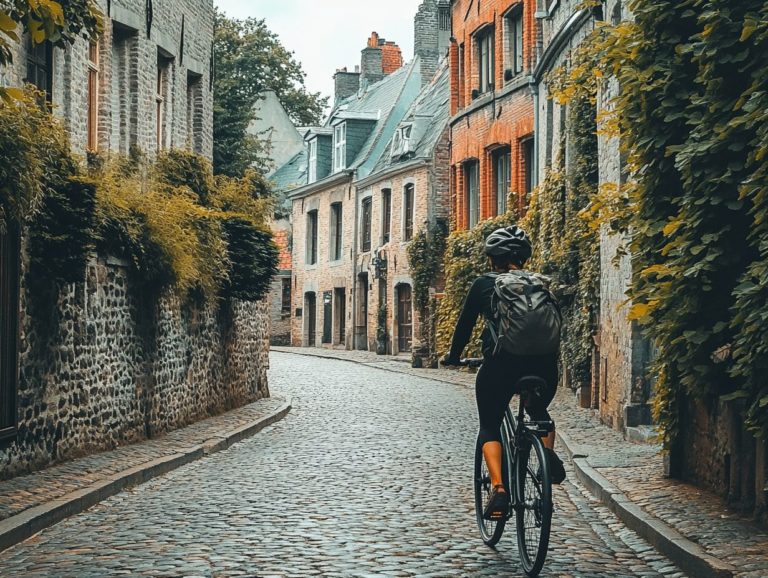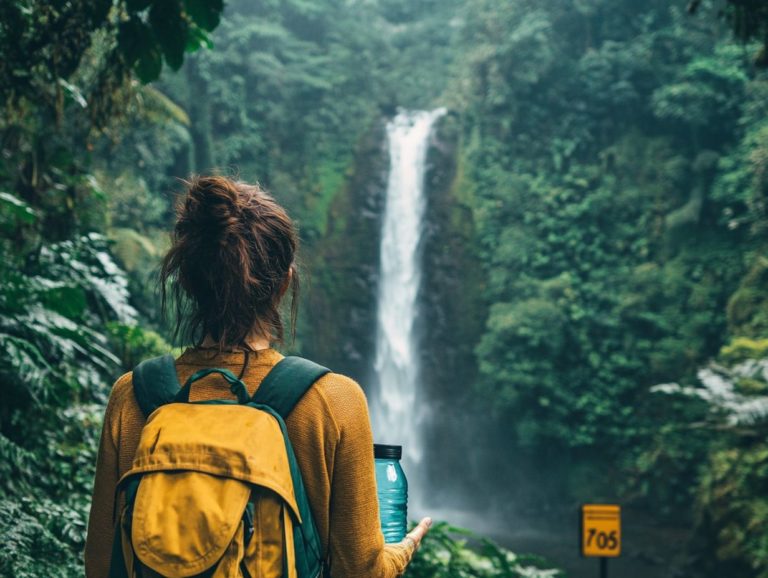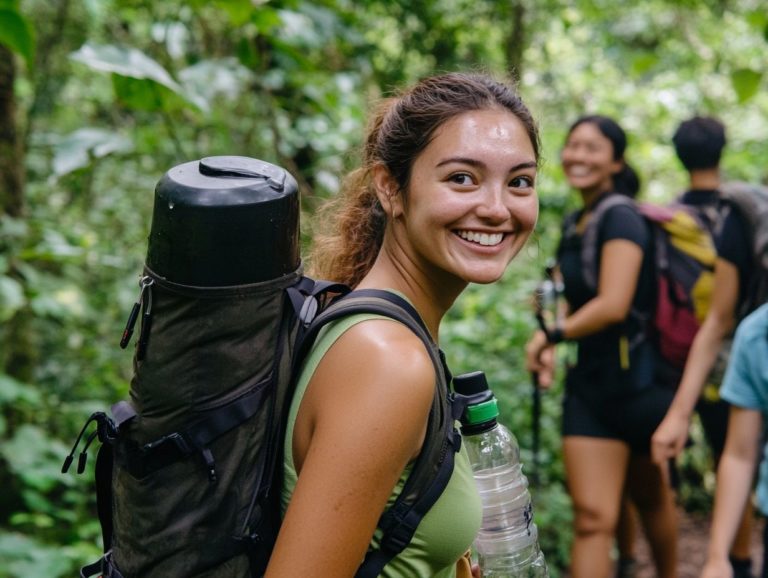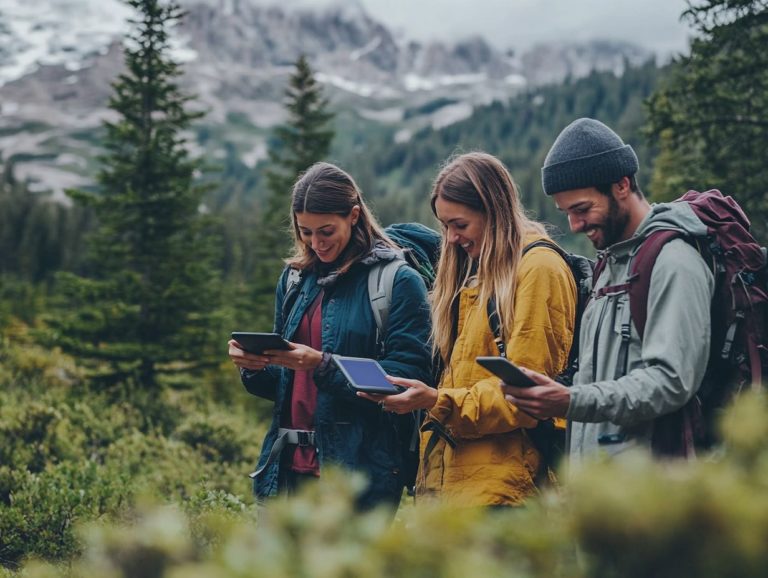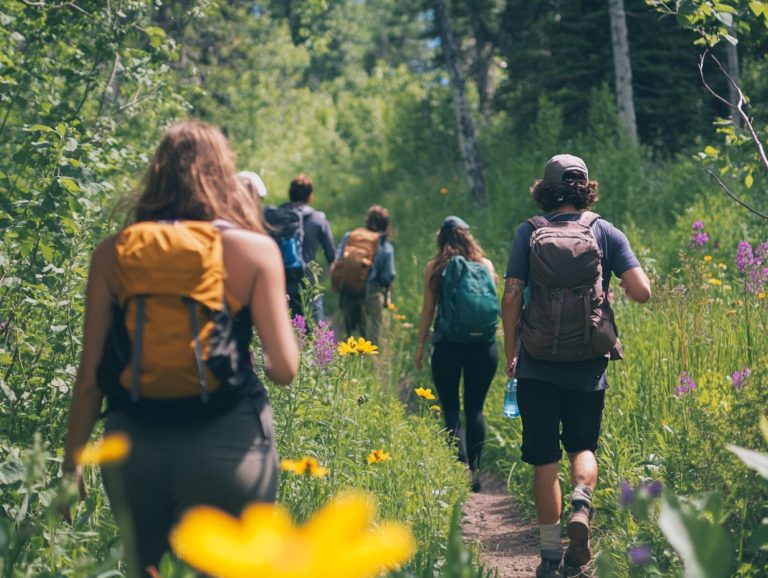The Role of Social Media in Responsible Travel
Social media has transformed your travel experiences, making every trip a shareable adventure, ripe for the telling.
While it opens doors to inspiration and connection, challenges lurk for destinations and local communities that you should be aware of.
This article delves into the dual impact of social media on travel, examining how it can promote sustainable practices alongside its potential drawbacks.
You will gain insights on how to travel responsibly, uplift local cultures, and optimize your online presence all while minimizing any negative effects.
Dive in and explore how social media is reshaping travel today!
Contents
- Key Takeaways:
- The Impact of Social Media on Travel
- The Dark Side of Social Media in Travel
- Responsible Travel and Social Media
- Using Social Media to Support Local Communities
- Tips for Responsible Social Media Use While Traveling
- Frequently Asked Questions
- What is the role of social media in responsible travel?
- How can social media be used for responsible travel?
- Is social media effective in promoting responsible travel?
- What are some ways social media can contribute to responsible travel?
- How can travelers use social media to support responsible travel?
- Are there any downsides to using social media in responsible travel?
Key Takeaways:
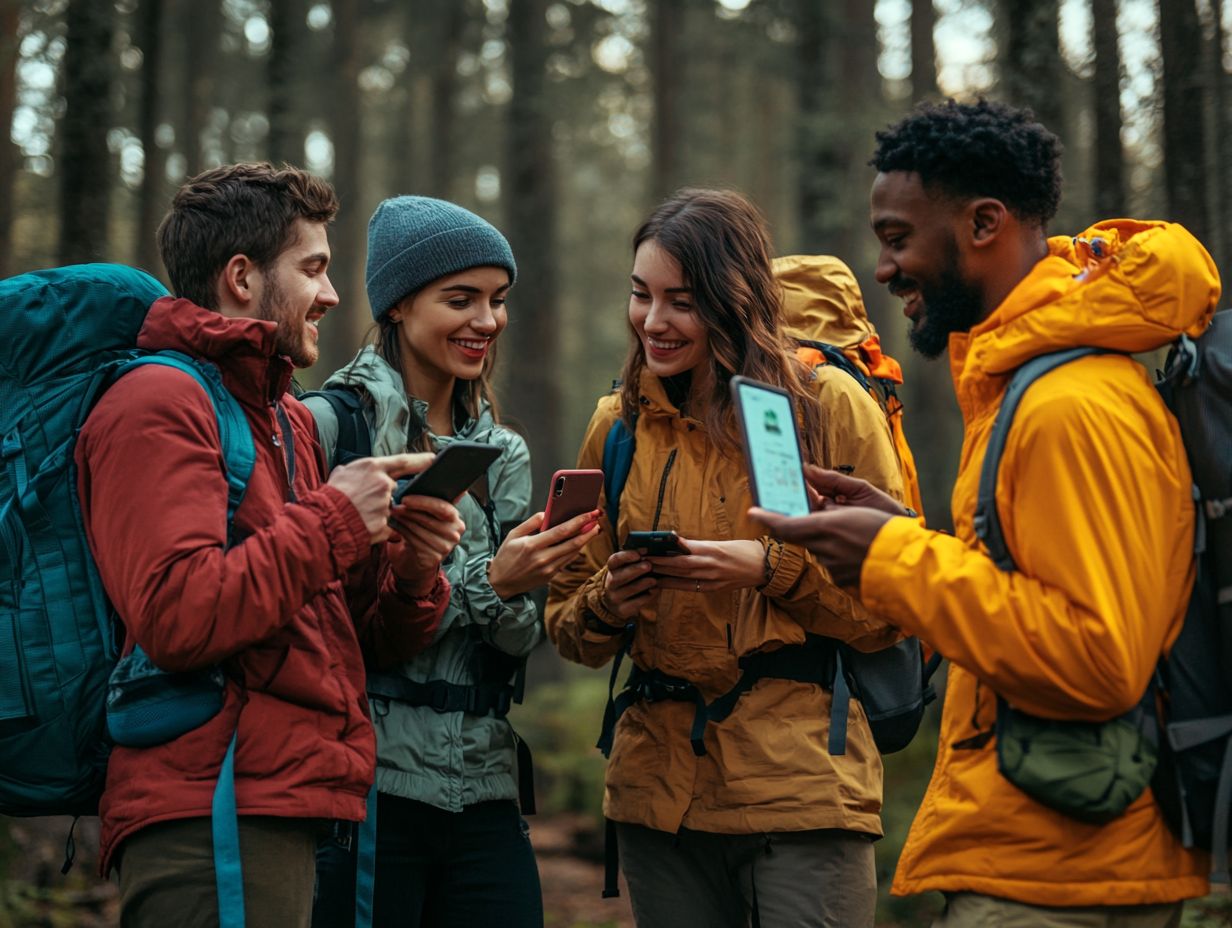
- Social media has revolutionized the way we travel, making it easier to plan, share, and document our trips. It has also played a role in promoting sustainable and ethical travel practices!
- Social media can also have negative effects on travel. From overtourism to misusing local cultures, it’s vital to be responsible and aware to protect our favorite places!
- One way to use social media responsibly is by supporting local communities and businesses. By empowering them through our online platforms, we can contribute to their economic and cultural sustainability.
The Impact of Social Media on Travel
The rise of social media has fundamentally reshaped the travel landscape, influencing not just how destinations are marketed but also the travel choices of environmentally aware travelers, particularly Gen-Z travelers. This social media influence is particularly evident in how they seek out experiences that align with their values.
This demographic, driven by platforms such as Instagram and TikTok, makes sustainable travel a top priority.
To thrive in this new environment, the tourism industry must adapt, harnessing these platforms to advocate for responsible travel that not only benefits local communities but also minimizes the total amount of carbon emissions caused by travel activities through initiatives like renewable energy.
How Social Media has Changed the Way We Travel
Social media has fundamentally transformed the travel landscape, elevating the visibility of destinations and providing a stage for travel influencers to share unique experiences that resonate with a global audience.
This evolution has changed how businesses market themselves, enabling them to engage with potential travelers directly through captivating visual content. For Gen-Z travelers, who are heavily influenced by online impressions, stunning imagery and authentic narratives wield considerable power in shaping their travel preferences.
By connecting with local cultures, travelers enhance their experiences while building cultural awareness. This approach fosters deeper interactions and a genuine appreciation for the places they explore, turning travel into something far more meaningful than mere destinations it becomes about forging lasting connections.
The Dark Side of Social Media in Travel
While social media has undeniably transformed the travel industry, it also carries a significant downside. The surge of tourists fueled by viral trends can lead to over-tourism, which in turn contributes to plastic waste and has detrimental effects on local communities.
Negative Effects on Destinations and Communities
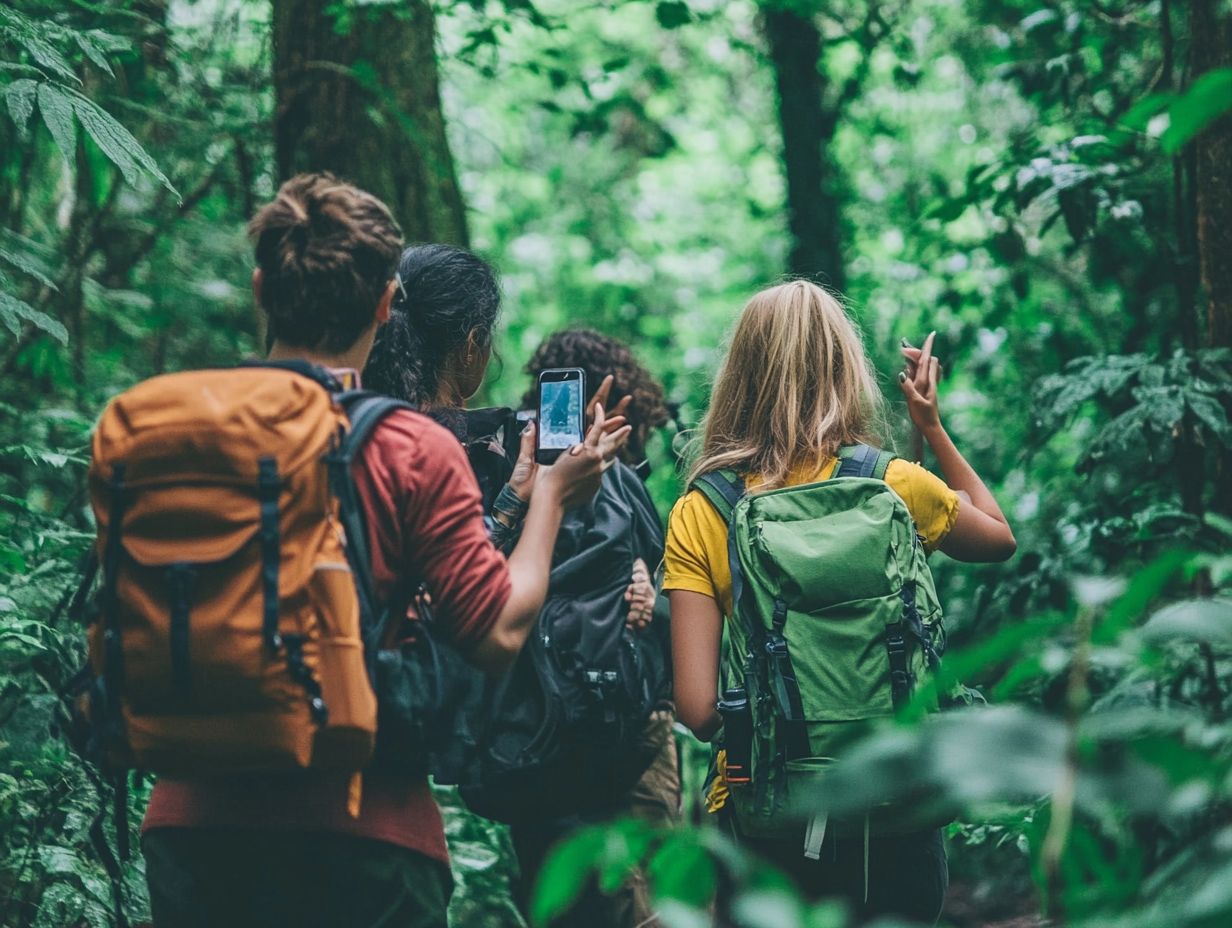
Over-tourism is a serious threat to destinations. Social media often drives this trend, impacting local communities and eroding cultural awareness.
This issue also inflates the carbon footprint. In places like Peru, the staggering number of visitors flocking to Machu Picchu has placed immense pressure on the land. Consequently, local authorities have imposed limitations on daily visitor counts.
This initiative safeguards the ancient site while protecting the surrounding ecosystems that local communities rely on.
In Rwanda, the surge of tourists eager to see the endangered mountain gorillas has sparked conversations about balancing economic benefits with wildlife conservation.
While tourism can inject revenue into these regions, it s vital for stakeholders to embrace eco-friendly practices in travel that ensure both the environment and local communities flourish, promoting balanced growth.
Responsible Travel and Social Media
Promoting responsible travel through social media can cultivate a culture of sustainability. It inspires you to support conservation efforts and connect with local communities in impactful ways.
By sharing your experiences and insights, you can influence others to adopt mindful travel practices that benefit both the environment and the destinations they explore.
Promoting Sustainable and Ethical Travel through Social Media
Promoting sustainable and ethical travel through social media enables you to uncover unique local experiences. Ensure your journeys leave a positive impact on both the environment and local communities.
This approach highlights the importance of sharing authentic cultural interactions and responsible tourism practices. By showcasing local artisans, traditional cuisines, and community-led initiatives, platforms like Instagram and Facebook inspire you to forge a deeper connection with the destinations you explore, emphasizing why responsible travel matters more than ever.
Influencers play a pivotal role in this landscape, curating content that captures the beauty of places like Guatemala and Belize. They encourage you to engage mindfully. When you understand the benefits of supporting local economies, you are more inclined to choose experiences that enrich both your journey and the communities you visit.
Using Social Media to Support Local Communities
Leveraging social media to support local communities can yield substantial economic advantages. This approach keeps travelers informed about responsible transportation options and local cultural practices.
Using these platforms fosters a connection that enhances community engagement. It also enriches the travel experience for those seeking to immerse themselves in local culture.
Empowering Local Businesses and Cultures
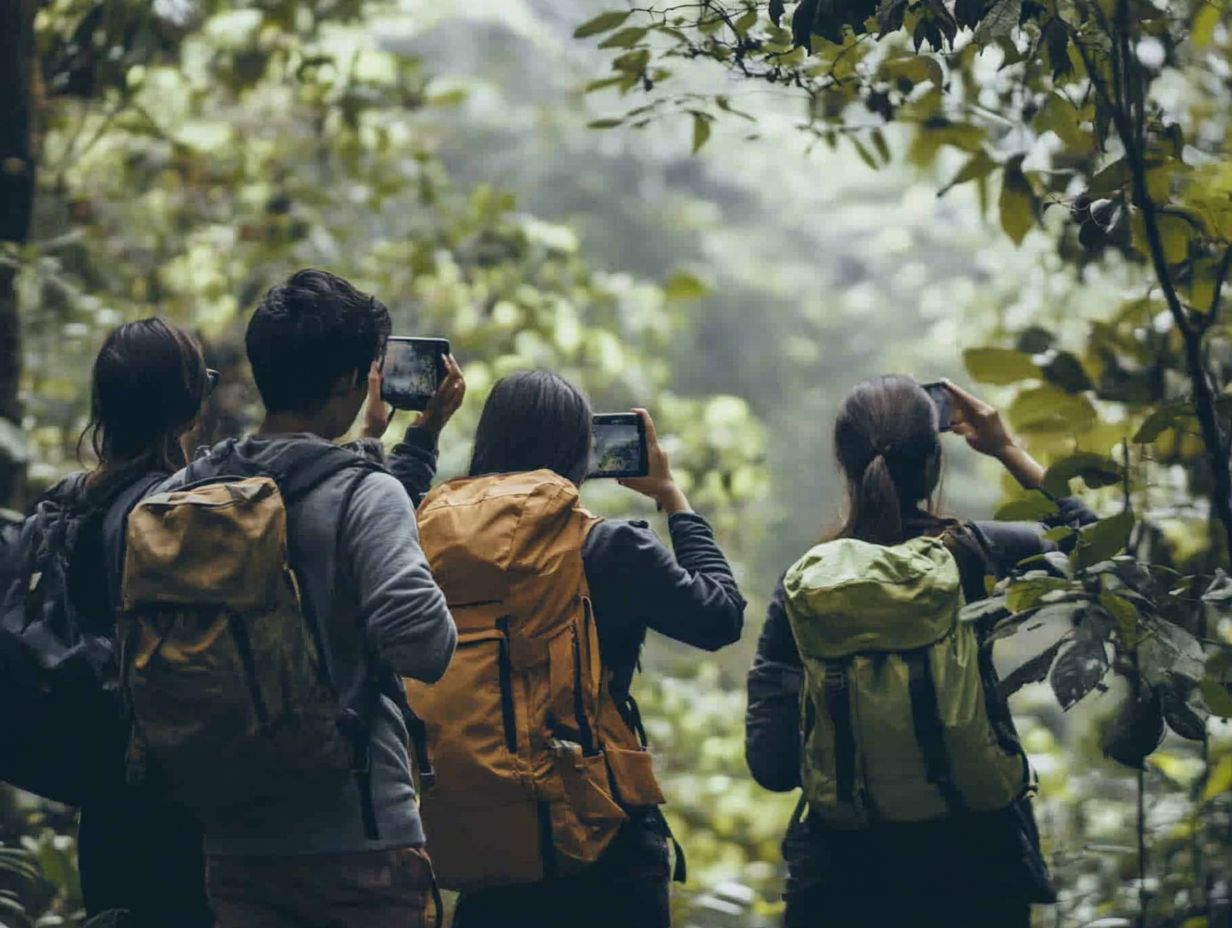
Empowering local businesses through social media enhances cultural awareness and drives responsible travel. It’s vital for those in the tourism industry to prioritize local engagement.
This gives you the power to showcase unique cultural offerings and encourages travelers to discover the hidden gems within the community.
Imagine social platforms as your creative canvas. Local artisans in Barbados can share their crafts and stories, drawing in curious visitors.
In Bhutan, you can highlight local culinary experiences or traditional festivals. This fosters deeper connections between travelers and the vibrant local culture. By employing strategies such as leveraging user-generated content, collaborating with influencers who align with local values, and promoting community-led initiatives, you can enhance these connections and create a sustainable, enriching travel experience for both visitors and locals alike.
Tips for Responsible Social Media Use While Traveling
Practicing responsible social media use while traveling is crucial for the eco-conscious traveler. By ensuring your online presence contributes positively to conservation efforts, you enhance your experience and promote mindful tourism that benefits the planet.
Join us and make a positive impact on the places you visit!
Minimizing Harm and Maximizing Impact
Adopting sustainable practices is essential to minimize harm and maximize impact. Follow the guidelines set by travel influencers who champion responsible tourism.
By doing this, you actively contribute to preserving the beauty of your destinations while supporting local economies. Engaging with influencers who care about the environment provides you with valuable insights into ethical travel options whether that means uncovering hidden gems or choosing eco-friendly accommodations.
It s crucial to share content that uplifts local artisans, promotes community initiatives, and highlights conservation efforts. This raises awareness and fosters a deeper understanding of the ecosystems you visit.
Ultimately, these actions create a chain reaction, encouraging more travelers to consider their impact on the planet, especially among the Gen-Z audience.
Frequently Asked Questions
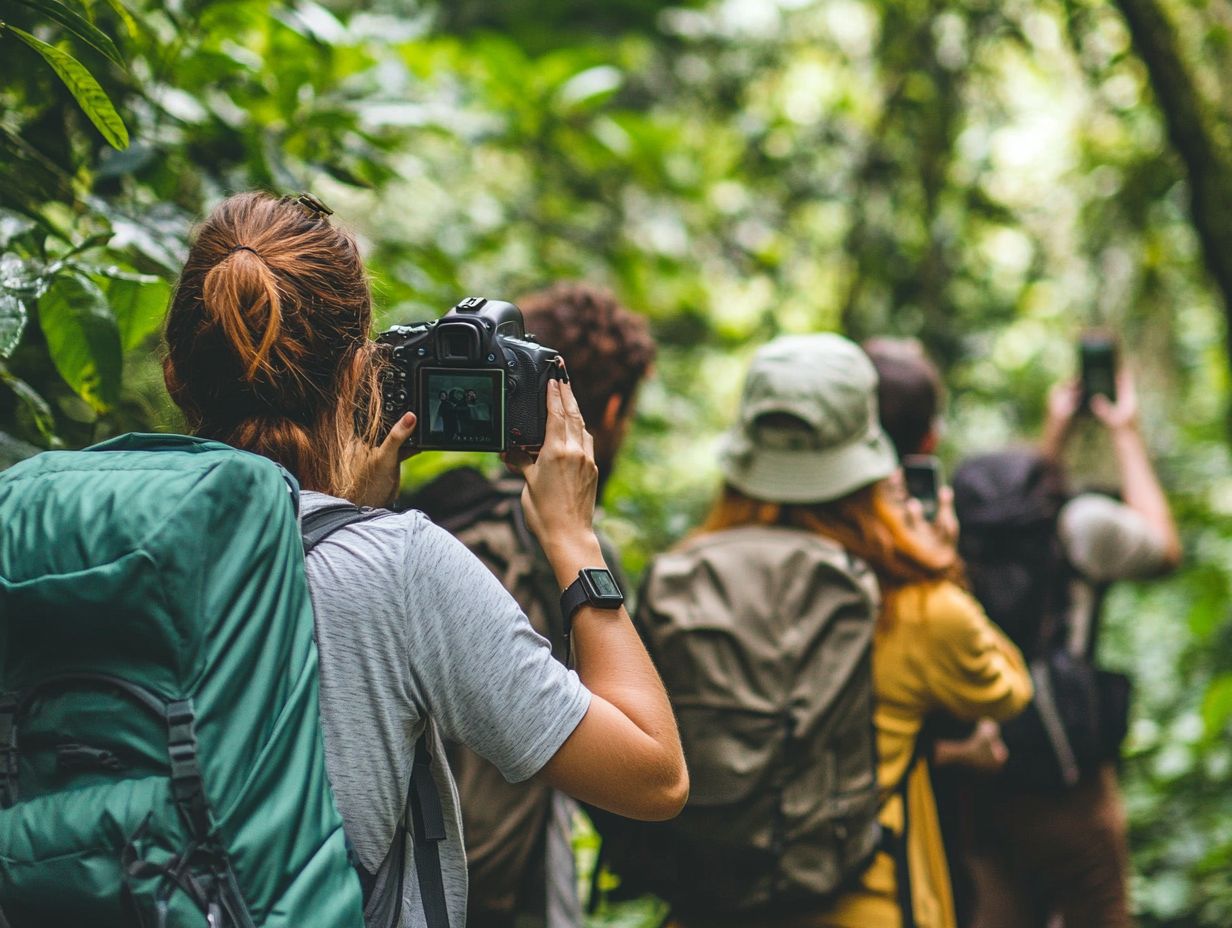
Social media plays an important part in promoting and encouraging responsible travel practices. It provides a platform for sharing information and raising awareness about sustainable tourism initiatives.
Social media can showcase responsible travel practices, share tips on sustainable tourism, and connect travelers with eco-friendly destinations and accommodations.
Yes, social media has a wide reach and can be a powerful tool in promoting responsible travel. It allows for sharing information and encourages travelers to make more conscious and sustainable choices.
Social media provides a platform for responsible travel advocates and organizations to share their initiatives and educate the public on sustainable tourism practices.
Travelers can research and plan their trips using social media, choosing eco-friendly and sustainable options. They can also share their own responsible travel experiences and spread awareness to their followers.
While social media can be a useful tool, it s important to be critical of the information shared and to fact-check before making any decisions. Additionally, relying too heavily on social media may lead to over-tourism in certain destinations, causing harm to the environment and local communities.
Share your thoughts about responsible travel in the comments below!


